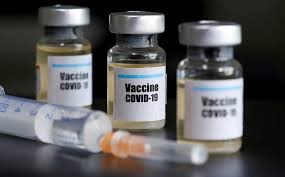Published on: 06/10/2020 • 7 min read
Think Twice Before Speculating on a COVID-19 Cure


As hundreds of companies race to develop vaccines and drug therapies that could help end the COVID-19 pandemic, news reports on successful or failed trials affect individual stock prices and can trigger swings in the broader market1. Understandably, this highly contagious virus — and its severe economic repercussions — has a knack for stirring up investors’ emotions.
By May 27, 2020, COVID-19 was responsible for more than 100,000 deaths in the United States and about 355,000 worldwide2. Investors are human beings first, and most of us are waiting anxiously for a cure that would stop the suffering and allow normal life to resume.
Governments and nonprofits have provided billions of dollars in support, and some red tape has been loosened, all to help speed a costly, complex, and time-consuming drug development process3. Even so, this influx of public funding — along with a concerted humanitarian effort — suggests that some of the most important discoveries may not generate profits for investors.
High hopes for a vaccine
A vaccine prepares the body’s immune system to recognize and resist a specific disease, preventing it from causing sickness and spreading to others. As of May 27, the World Health Organization (WHO) was tracking 125 experimental vaccine candidates globally, 10 of which had advanced to clinical evaluation. Another 115 candidates are still in the pre-clinical stage, which involves testing in cells and/or animals and waiting for regulators to review results and grant permission for human trials4.
Clinical studies are conducted in three phases. During Phase I, a small study of healthy people tests the safety and immune response of the vaccine at different doses. Phase II is a randomized, double-blind, controlled study of hundreds of people that further assesses safety, efficacy, and optimal dosing. If all goes well, clinical studies expand to include thousands of people in Phase III5. These larger studies can be challenging because they test how well the vaccine works in an environment where the virus is spreading6.
Despite the urgency, COVID-19 vaccine candidates can’t skip any of these crucial steps, but timelines have been accelerated7. Health officials have said it could take 12 to 18 months before a vaccine may be available8.
The U.S. government has struck supply deals with several pharmaceutical companies to support research into leading vaccine candidates and boost the manufacturing capacity needed to produce 300 million doses by fall of 2020, should a candidate prove effective9.
Other nations and well-funded nonprofits have made similar deals. Massive public investment allows drug makers to get a head start on manufacturing doses while waiting for human trials to conclude and approval to be granted. In return, at least one drug maker has promised to sell an approved vaccine without making a profit during the pandemic10.
A COVID-19 vaccine is not imminent — a point made by the fact that there is no vaccine to prevent HIV after several decades of research. Still, early progress on several fronts offers reasons to be cautiously optimistic11.
Testing old and new therapies
The development and approval process for experimental drugs is similar to the one for vaccines. Companies that develop successful treatments are likely to face the same manufacturing challenges and pricing pressures. In the meantime, doctors are testing existing therapies that might help COVID-19 patients12.
One existing antiviral drug was approved for emergency use by the U.S. Food and Drug Administration after it was determined to help hospitalized patients with severe COVID-19 recover faster. The pharmaceutical giant that makes the drug has ramped up production and is donating about 1.5 million doses as a public good13.
Scientists are also working on targeted antibody therapies, which depend on the identification of specific antibodies that bind with and neutralize the novel coronavirus. At high doses the right antibodies might prevent the disease from worsening in hospitalized patients, and at lower doses the same antibodies could provide short-term immunity for front-line workers.
Effective antibody drugs are easier to develop but more complex to manufacture. Thus, there is limited global capacity to produce the large amounts needed. Governments, nonprofits, and companies that are normally competitors are reportedly discussing ways to share manufacturing plants if one company’s antibody proves to work better than the others14.
Antibody treatments could help save lives as long as COVID-19 is a threat, but widespread vaccination could make them obsolete. If a successful vaccine materializes, many valiant efforts to develop beneficial therapies may never make much money.
More implications for investors
As of May 21, 2020, the U.S. government had invested at least $2 billion for the development of coronavirus vaccines and $300 million for antiviral and antibody therapies15. New biotechnologies, generous financial support, and unprecedented cooperation between governments and industry leaders could shave several years off typical development timelines16.
It’s rarely easy to predict which new products will perform well enough in multiple rounds of studies to earn regulatory approval. Moreover, the stock market’s mid-May rally and high valuations for biotech and pharmaceutical shares imply that success in developing COVID-19 treatments might already be priced in — especially for newsmakers17.
Headline-induced price swings suggest that investors are making decisions driven by your hopes, fears, and investment biases and possibly based on limited information, instead of a realistic assessment of an investment’s longer-term earnings potential. Now more than ever, it’s important to have a well-researched investment strategy based on your own goals, time horizon, and risk tolerance.
Footnotes:
1 and 17: The Wall Street Journal, May 18, 2020
2: Johns Hopkins University, May 27, 2020
3, 5, 7-8, 16: World Economic Forum, 2020
4: World Health Organization, May 27, 2020
6: Bloomberg News, May 7, 2020
9-10: The Wall Street Journal, May 21, 2020
11: NPR.com, May 12, 2020
12, 14-15: Bloomberg Businessweek, April 20, 2020
13: STAT, April 29, 2020
Disclaimer:
The information herein has been obtained from sources believed to be reliable, but we do not guarantee its accuracy or completeness. Neither the information nor any opinion expressed constitutes a solicitation for the purchase or sale of any security or product.
Please remember that past performance may not be indicative of future results. Different types of investments involve varying degrees of risk, and there can be no assurance that the future performance of any specific investment, investment strategy, or product (including the investments and/or investment strategies recommended or undertaken by Avidian Wealth Solutions), or any non-investment related content, referred to directly or indirectly in this newsletter will be profitable, equal any corresponding indicated historical performance level(s), be suitable for your portfolio or individual situation or prove successful. Due to various factors, including changing market conditions and/or applicable laws, the content may no longer be reflective of current opinions or positions. Moreover, you should not assume that any discussion or information contained in this newsletter serves as the receipt of, or as a substitute for, personalized investment advice from Avidian Wealth Solutions. Please remember to contact Avidian Wealth Solutions, in writing, if there are any changes in your personal/financial situation or investment objectives to review/evaluating/revising our previous recommendations and/or services. Avidian Wealth Solutions is neither a law firm nor a certified public accounting firm and no portion of the newsletter content should be construed as legal or accounting advice. A copy of the Avidian Wealth Solutions’s current written disclosure statement discussing our advisory services and fees continues to remain available upon request.
Financial Planning and Investment Advice offered through Avidian Wealth Management (STA), a registered investment advisor. STA does not provide tax or legal advice and the information presented here is not specific to any individual’s circumstances. To the extent that this material concerns tax matters or legal issues, it is not intended or written to be used, and cannot be used, by a taxpayer to avoid penalties that may be imposed by law. Each taxpayer should seek independent advice from a tax professional based on his or her circumstances. These materials are provided for general information and educational purposes based upon publicly available information from sources believed to be reliable—we cannot assure the accuracy or completeness of these materials. The information in these materials may change at any time and without notice. ALL INFORMATION PROVIDED HEREIN IS FOR EDUCATIONAL PURPOSES ONLY – USE ONLY AT YOUR OWN RISK AND PERIL.
Please read important disclosures here
Get Avidian's free market report in your inbox

Schedule a conversation
Curious about where you stand today? Schedule a meeting with our team and put your portfolio to the test.*